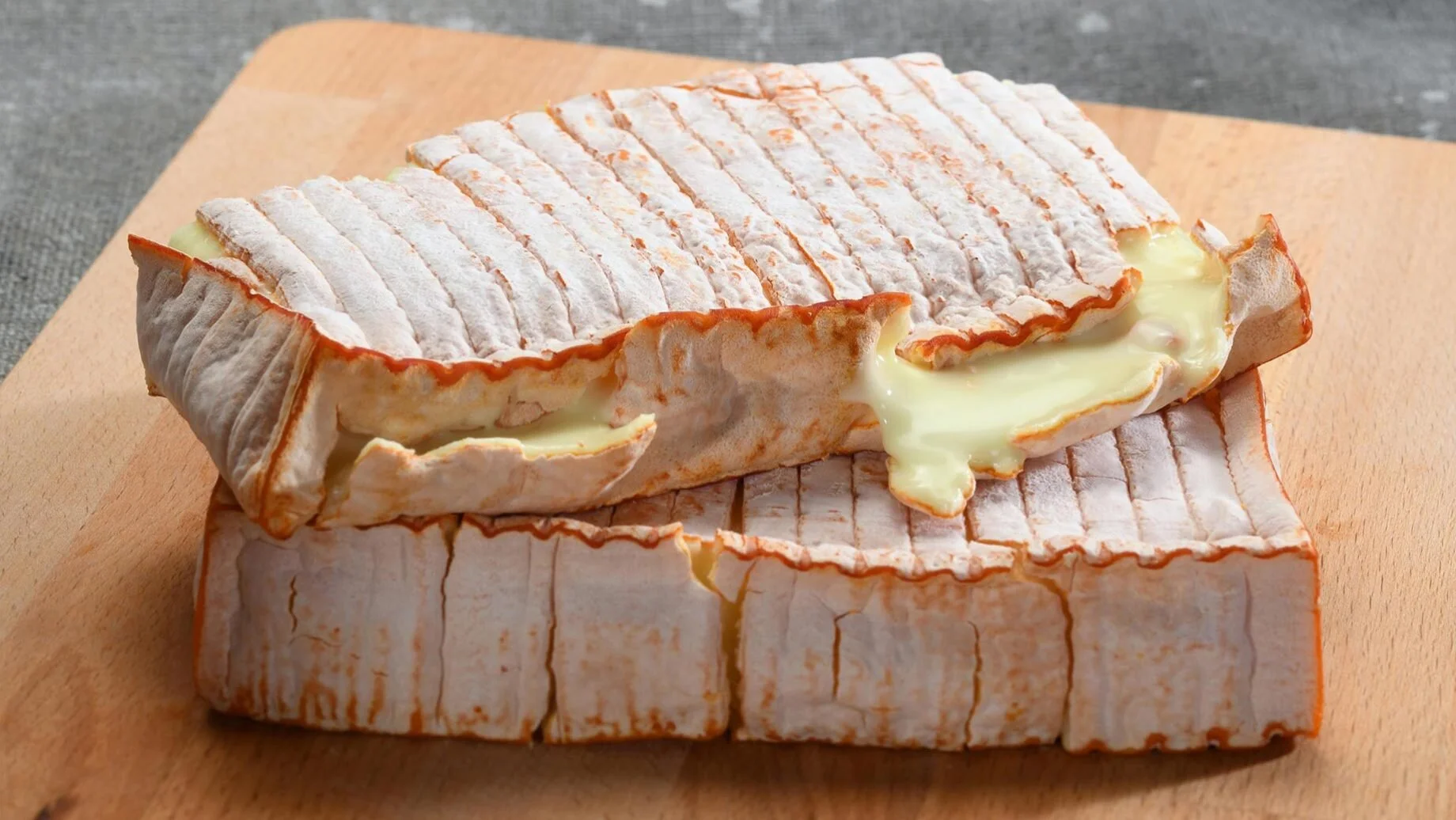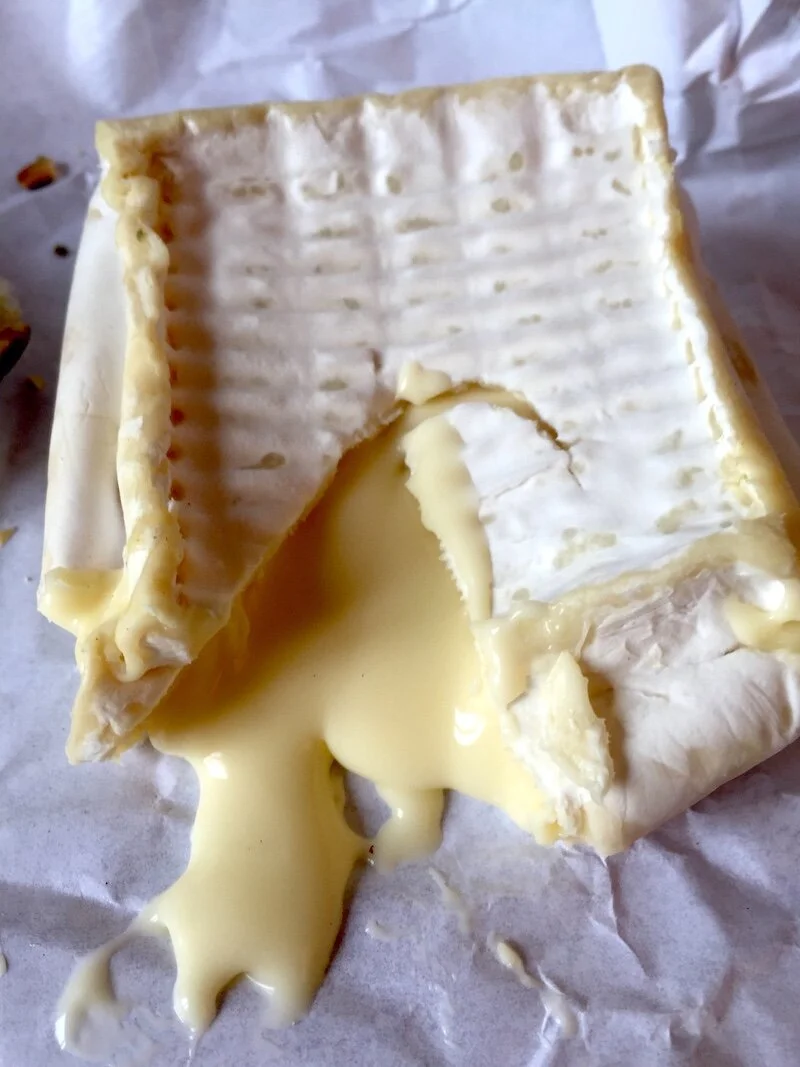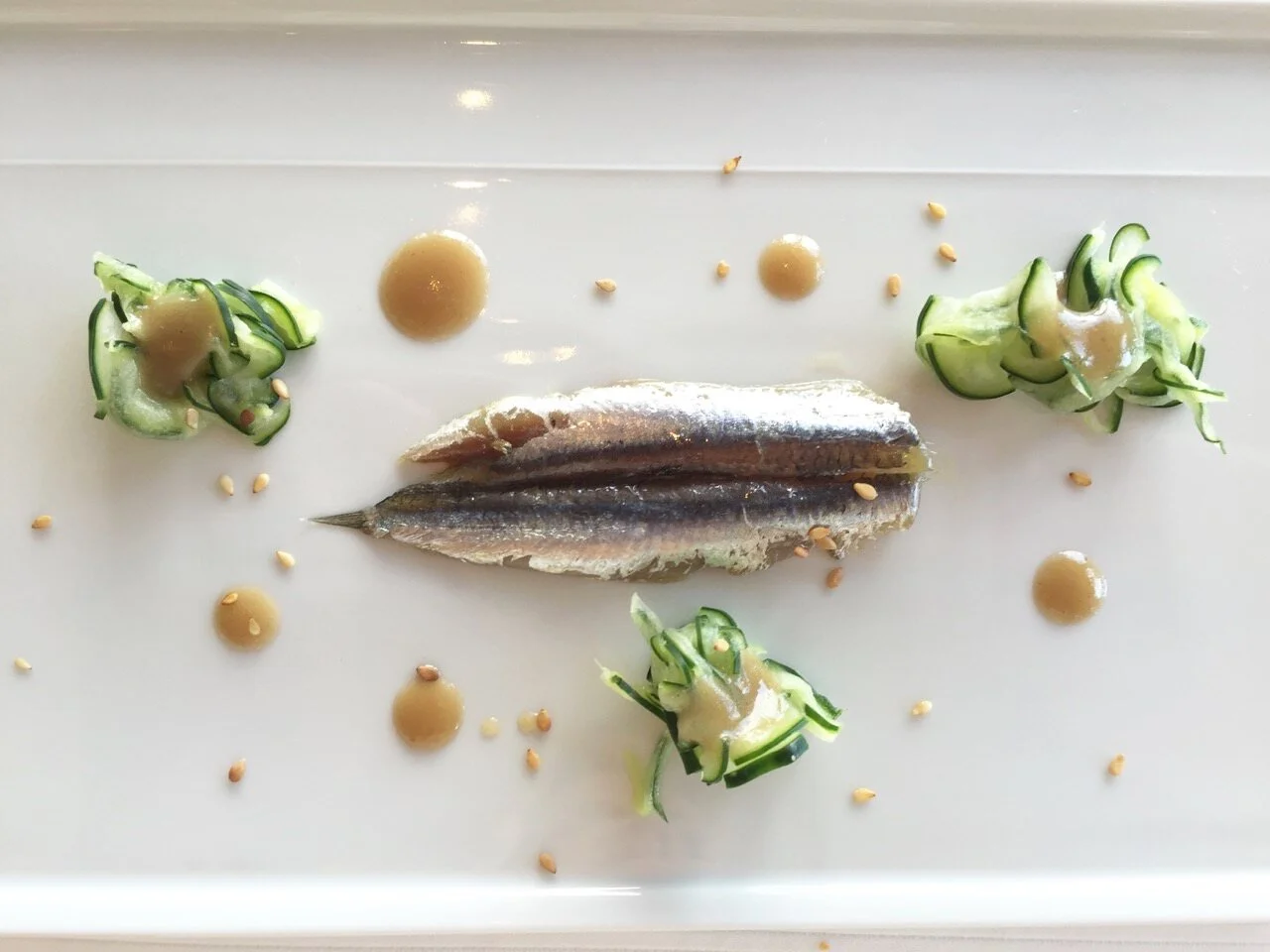World Cheese Encyclopaedia - Each Sunday learn all about a new cheese.
This week Saint-Marcellin from France.
Country: France 🇫🇷
Region: Isère, Rhone-Alpes
Made from: Cow’s milk
Pasteurised: No
Texture: Soft, creamy, runny
Taste: Creamy, mushroomy, nutty
Certification: IGP (Indication Géographique Protégée)
Aging: minimum 12 days
Saint-Marcellin is a soft unpasteurised, mold ripened French cheese made from cow's milk. It is a natural rind cheese. It is named after the small town where it originated, Saint-Marcellin in the French region of Isère. The area also has many walnut orchards and is famous for its Grenoble A.O.C. walnuts.
Saint-Marcellin is a small round, mottled wrinkly cheese. It has a very thin rind with a coating of creamy-white down which, depending on the age of the cheese, can have a yellowish hue or sometimes a few blue marks. It has a cream colored interior with a silky paste. It usually weighs about 80 grams and has 50% fat content.
Due to the delicateness of its rind, it is often sold in a small terracotta dish to keep the rind from bursting. The texture of the young cheese varies from firm to very runny and the runniness increases with age.
It has a mild, nutty, mushroomy and slightly salty flavour. When ripe, it develops a more yeasty taste.
History
Saint-Marcelin was made exclusively from goat's milk until the 13th century. It is said to have been « discovered » by Louis XI when he had a hunting accident near Vercors, and had to stay there for some time to recover. During his convalescence there, lumberjacks were said to have shared Saint-Marcellin cheese with the king. He enjoyed it so much that he later included it at his royal table. During the 18th century Saint-Marcellin started to be made using a mix of cows and goats milk as the breeding of cows increased and that of goats decreased. Finally it became a cows milk cheese as it is today.
How to Enjoy It
Photo: Domaine des Forges
Saint-Marcellin is delicious on its own, or on bread or crackers. It can be lightly warmed in the oven for a few minutes to make an even runnier, delicious treat. On a cheese board it goes very well with apples or grapes. Pair it with a red wine such as an Anjou Villages from the Loire made with Cabernet-Franc or a dry white such as a Mâcon-Villages from Burgundy made from Chardonnay grapes.
Sources: Wikipedia, cheese.com, seriouseats.com, fromages-france.com, fromages.com
Looking for a different cheese? Search the whole cheese encyclopaedia here.
Have you always dreamed of becoming a better cook? Now you can with our online video cooking classes
































